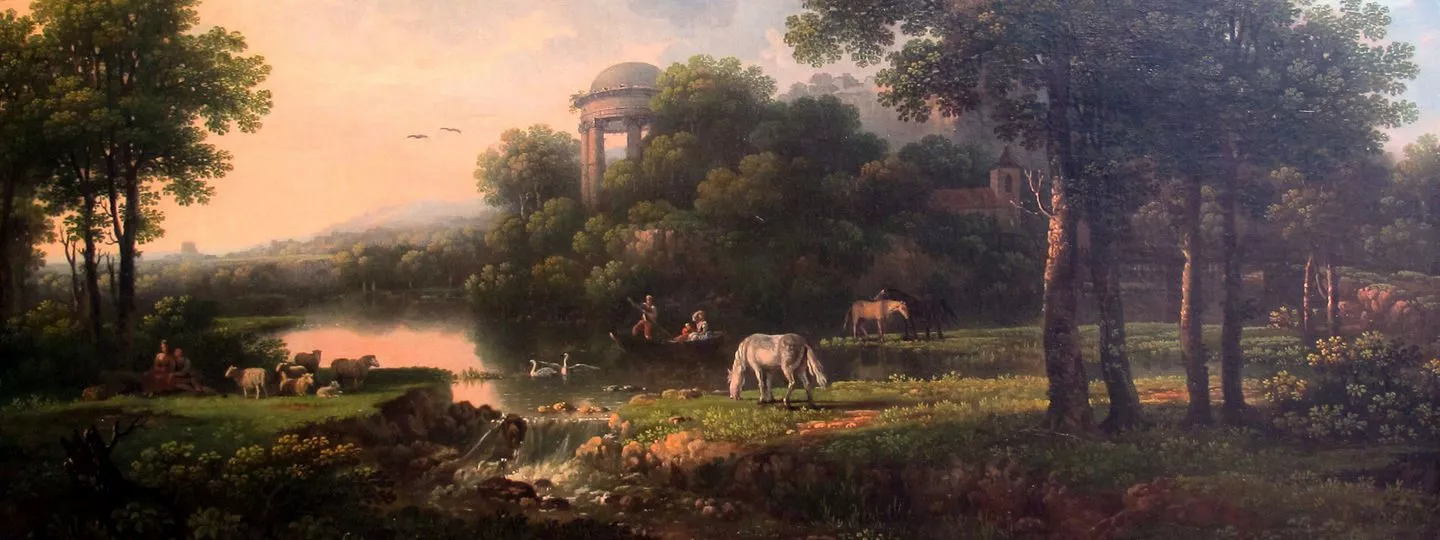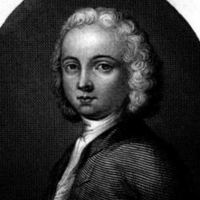
William Collins
William Collins (25 December 1721– 12 June 1759) was an English poet. Second in influence only to Thomas Gray, he was an important poet of the middle decades of the 18th century. His lyrical odes mark a turn away from the Augustan poetry of Alexander Pope’s generation and towards the Romantic era which would soon follow.
William Collins (25 December 1721– 12 June 1759) was an English poet. Second in influence only to Thomas Gray, he was an important poet of the middle decades of the 18th century. His lyrical odes mark a turn away from the Augustan poetry of Alexander Pope’s generation and towards the Romantic era which would soon follow.
Biography
Born in Chichester, Sussex, the son of a hatmaker and former mayor of the town, he was educated at The Prebendal School, Winchester and Magdalen College, Oxford. While still at the university, he published the Persian Eclogues (1742) which he had begun at school. After graduating in 1743 he was undecided about his future. Failing to obtain a university fellowship, being judged by a military uncle as 'too indolent even for the army’, and having rejected the idea of becoming a clergyman, he settled for a literary career and was supported in London by a small allowance from his cousin, George Payne. There he was befriended by James Thomson and Dr Johnson as well as the actors David Garrick and Samuel Foote.
In 1747 he published his collection of Odes on Several Descriptive and Allegorical Subjects on which his subsequent reputation was to rest. The poems are characterized by strong emotional descriptions and the personal relationship to the subject allowed by the ode form. At the time little notice was taken of these poems, which were at odds with the Augustan spirit of the age. With the depression on his lack of success, aggravated by drunkenness, he sank into insanity and in 1754 was confined to McDonald’s Madhouse in Chelsea. From there he moved to the care of a married elder sister in Chichester until his death in 1759, when he was buried in St Andrew’s Church.
After the Odes, although he had many projects in his head, none came to fruition. His only other poems were the ode written on Thomson’s death (1749) and the posthumously discovered and unfinished “Ode on the popular superstitions of the Highlands of Scotland”. An intriguing addition, now lost, is the “Ode on the Music of the Grecian Theatre” that he described and proposed sending to the musician William Hayes in 1750. Hayes had just set “The Passions” by Collins to music as an oratorio that was received with some acclaim. This, coupled with the popularity of the Persian Eclogues, a revised version of which was published the year he died, was the closest approach to success that Collins knew.
Legacy
Following his death, his poems were issued in a collected edition by John Langhorne (1765) and slowly gained more recognition, although never without criticism. While Dr Johnson wrote a sympathetic account of his former friend in Lives of the Poets (1781), he dismissed the poetry as contrived and poorly executed. Charles Dickens was dismissive for other reasons in his novel Great Expectations. There Pip describes his youthful admiration for a recitation of Collins’s The Passions and comments ruefully, 'I particularly venerated Mr. Wopsle as Revenge throwing his blood-stain’d Sword in Thunder down, and taking the War-denouncing Trumpet with a withering Look. It was not with me then, as it was in later life, when I fell into the society of the Passions and compared them with Collins and Wopsle, rather to the disadvantage of both gentlemen’.
Works
Persian Eclogues (1742); these were revised as Oriental Eclogues in 1759.
Verses humbly address’d to Sir Thomas Hanmer on his edition of Shakespeare’s works (1743); republished in a revised edition in 1744, in which “A Song from Shakespeare’s Cymbeline” was included.
Odes on Several Descriptive and Allegorical Subjects (1746)
Ode on the Death of Thomson (1749)
Ode on the Popular Superstitions of the Highlands (written 1750, unpublished until later editions)
Editions
Poetical works of William Collins, ed. John Langhorne, originally published in 1765; several editions followed, to which Dr Johnson’s life of Collins was added.
A scholarly edition was published in The Poetical Works of Gray and Collins (ed. Austin Poole) by Oxford University Press in 1926; from the same press there followed the definitive edition of The Works of William Collins (ed. Wendorf & Ryskamp) in 1979.
References
Wikipedia—https://en.wikipedia.org/wiki/William_Collins_(poet)


